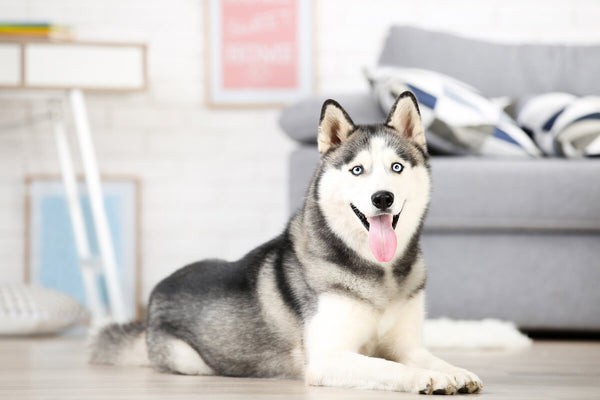
Recent research conclusively shows that Siberian Huskies are not hypoallergenic dogs. With their distinctive double coat consisting of a dense undercoat and weather-resistant topcoat, these working dogs are among the heaviest shedders in the canine world. The significant year-round shedding, combined with bi-annual "coat blowing" periods in spring and fall, makes them particularly challenging for allergy sufferers. The allergens are primarily found in their dander (dead skin cells), saliva, and urine proteins, which become airborne through shedding. This report examines the allergenic properties of Siberian Huskies and explores management strategies for potential owners with allergies.
Are Siberian Huskies Hypoallergenic?
Allergenic Nature of Huskies
Siberian Huskies are not hypoallergenic dogs. They have a dense double coat consisting of a weather-resistant top layer that sheds moderately year-round and an undercoat that sheds heavily twice annually during "blowing coat" seasons in spring and fall. This makes them one of the heaviest shedding breeds, spreading significant amounts of dander and allergens throughout the home environment.
Medical Emergency Signs
For those with severe allergies, exposure to Husky allergens can trigger dangerous reactions requiring immediate medical attention. Warning signs include:
- Severe breathing difficulties or wheezing
- Rapid swelling of face, lips or throat
- Widespread hives or rash developing quickly
- Dizziness, confusion or fainting
- Weak or rapid pulse
Anyone experiencing these symptoms should seek emergency care immediately and avoid further contact with the dog until medically cleared.
Are Siberian Huskies Hypoallergenic? A Definitive Answer\Managing Husky Allergies: Tips and Alternative Breeds
Managing Husky Allergens at Home
While previous sections covered the allergenic nature of huskies, here are specific management strategies for those living with these dogs. According to experts, using HEPA filters and regular cleaning are essential - place air purifiers in main living areas and vacuum daily with HEPA-equipped cleaners. Bathing frequency should be limited to every 3-4 months to preserve coat health, increasing to every 6-8 weeks during shedding seasons.
Allergy-Friendly Alternatives
For severe allergy sufferers seeking similar traits to huskies, the Portuguese Water Dog is recommended as the closest match - sharing the same size range (30-60 pounds), high energy level, and friendly temperament but with a low-shedding coat. Other options include the Standard Schnauzer or Kerry Blue Terrier, which offer similar builds with more hypoallergenic coats.
Are Siberian Huskies Hypoallergenic?
Understanding Husky Allergens
While previous sections covered the general allergenic nature of huskies, it's important to understand the specific allergen mechanisms. According to research, the main allergen trigger is not the fur itself, but rather a protein found in pets' dander and saliva. When huskies lick their coat, they spread these proteins through their fur. The double coat then acts as a distribution system, releasing allergen-laden dander and fur into the environment during shedding.
Common Allergy Symptoms
The most frequent allergic reactions to huskies include nasal congestion, sneezing, watery eyes, skin rash, and postnasal drip. These symptoms typically appear shortly after exposure and can persist as long as allergens remain in the environment. The severity varies based on individual sensitivity and exposure levels.
Conclusion
Siberian Huskies are definitively not hypoallergenic dogs due to their dense double coat that sheds heavily year-round, with particularly intense shedding during biannual "blowing coat" seasons. The main allergen trigger comes from proteins in their dander and saliva that spread through their fur, making them challenging pets for allergy sufferers. Common allergic reactions range from mild symptoms like nasal congestion and watery eyes to potentially severe reactions requiring emergency medical care.
For those determined to live with a Husky despite allergies, management strategies include using HEPA air filters, frequent vacuuming, and controlled bathing schedules. However, individuals with severe allergies should consider alternative breeds like the Portuguese Water Dog, Standard Schnauzer, or Kerry Blue Terrier, which offer similar positive traits but with more allergy-friendly coats. The key takeaway is that while Huskies make wonderful companions, their high-shedding nature makes them unsuitable for allergy-sensitive individuals without careful consideration and management strategies in place.